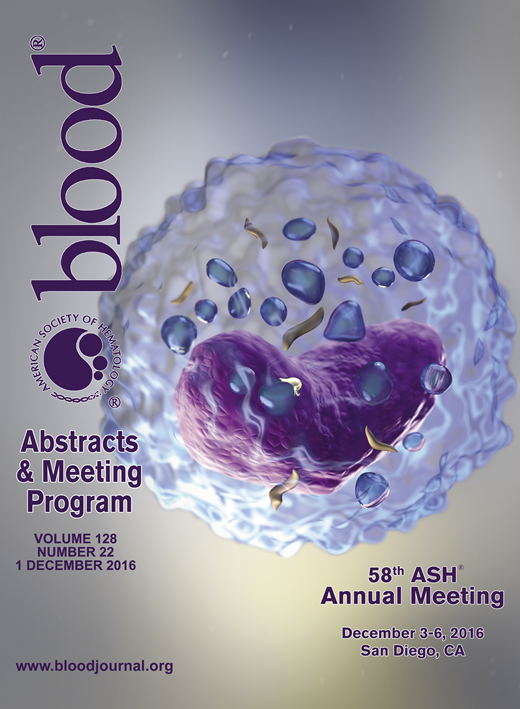Abstract
Introduction
Respiratory viruses are an important cause of outbreaks of pneumonia in hematological malignancy patients. Recently, novel Middle East respiratory syndrome coronavirus (MERS-CoV) caused a cluster of life-threatening infections in Saudi Arabia (688 confirmed MERS-CoV infection cases with 282 deaths were reported to WHO by June 6, 2014 including 28% cases in HCW). Most patients had upper &/or lower respiratory tract symptoms but other features included abdominal pain, diarrhea, acute kidney injury & shock. Few hematology units were closed due to havoc. Here we report clinical features & outcome of 4 patients diagnosed at our unit during the peak period (mid-March through May 2015) including 2 who got chemotherapy (chemo) soon after recovery.
Patient #1
A 62-yr-old male had free λ light chain multiple myeloma (MM) with spinal cord compression. After surgery & local radiation, he was sent to us with paraplegia & grade 4 infected sacral bedsore that needed inpatient care. He was started on CyBorD Cycle 2 on April 24, 2014. On May 2, he had a fever spike with shortness of breath (SOB) & cough. He was started on antibiotics. CXR revealed bilateral infiltrates & right sided pleural effusion. His O2 sat dropped & he needed CPAP. Oseltamivir was started & sputum was positive for MERS-CoV RT-PCR. He became afebrile with decreasing O2 requirement, CXR normalized & RT-PCR for MERS-CoV turned negative. Later he was able to receive 3rdcycle of CyBorD.
Patient #2
A 65-yr-old lady came to us with B symptoms & huge organomegaly due to stage-IV DLBCL. On May 2, 2014 RCVP chemo was started. On day 6, she spiked fever with SOB, cough & was started on imipenem. CXR showed consolidation in right lower lobe. She needed 4L of O2/min. On May 10, 2014, she worsened with RR 32/min, O2 sat 79% on 15L O2/min & BP 79/47 mmHg. CXR revealed bilateral consolidation. She needed intubation & inotropic support in ICU. Vancomycin & oseltamivir were started & RT-PCR was positive for MERS-CoV on two nasopharyngeal swabs (NPS). LFT & RFT were normal but she continued to decline & died on May 13, 2014.
Patient # 3
A 22-yr-old lady with past H/O AML t(8;21) was admitted on April 27, 2014 with 3 day H/O cough, fever & SOB. CXR had infiltrates in left lower lobe. She had severe pancytopenia & BMB confirmed relapsed AML. She had slightly raised LFT. Urine grew Ent. fecium. Antibiotics & voriconazole were used. She remained febrile over next 2 days. CT chest revealed extensive bilateral consolidation. She needed O2 up to 5L/Min for few days. RT-PCR for MERS-CoV was positive from NPS. She was initiated on oseltamivir. She became afebrile after 2 days & repeated RT-PCR for MERS-CoV was negative. Fludara, Ara-C (FA) chemo was started. She remained neutropenic for next 4 weeks but there was no recurrence of respiratory symptoms. BMB on day 28 of FA confirmed CR. CT chest revealed complete resolution of air space opacities. She was discharged with plan to undergo matched sibling donor Allo-HSCT.
Patient #4
A 76-yr-old male with H/O HTN & CKD was diagnosed to have IgA κ MM. He was started on MPV chemo as inpatient due to logistic reasons. After 3 cycles of MPV, serum free κ chains decreased by 91% but remained on dialysis. On 21 April, 2014 he developed cough, SOB & fever. CXR revealed bilateral infiltrates & antibiotics were started. He worsened over next few days & CXR showed worsening bilateral consolidation. Eventually he needed intubation. He was treated with antimicrobials including voriconazole & oseltamir. RT-PCR for MERS-CoV was positive from NPS. Unfortunately he died few days later.
Discussion:
Patients with hematological malignancies are at increased risk of community & hospital-acquired infections. Recent outbreak of MERS-CoV infection has created a havoc among hematologists community. There is uncertainty about impact of MERS-CoV infection on continuation of chemo. We report 4 cases of hematological malignancies with MERS-CoV infection. Three of the 4 patients developed severe pneumonia & required intubation (2 died later) & one had milder form of pneumonia treated in isolation room. In addition to supportive care, all 4 received antimicrobials & oseltamivir. Chemo was safe soon after recovery from infection in the surviving 2 patients. We propose that during MERS-CoV epidemics, pneumonia can be treated with supportive care, antibiotics & oseltamivir. Chemo can be continued for the malignant disease soon after recovery. Further reports are needed to confirm our findings.
No relevant conflicts of interest to declare.
Author notes
Asterisk with author names denotes non-ASH members.

